Groundbreaking advances in immunotherapy have revolutionized the treatment of cancer. In particular, new antibody drugs that block immunosuppressive pathways have achieved remarkable success in reawakening the immune system to clear tumor cells, leading to lasting cures in patients whose cancers do not respond to any other therapies. Unfortunately, the majority of patients (>70%) do not respond to immunotherapy treatment. It is difficult to predict which patients will benefit, creating an urgent demand for novel immunotherapy drugs that act through alternative mechanisms. Dr. Spangler is working to develop a class of antibody therapeutics that target cancer-promoting pathways in a different way than all current immunotherapies, with the goal of drastically expanding the percentage of cancer patients who benefit from them.
All Cancers
Current Projects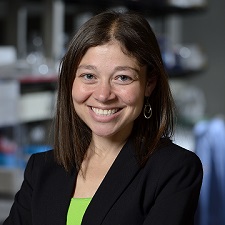

More than one third of all people will receive a cancer diagnosis at some point in their lifetime. Dr. Sretenovic [Connie and Bob Lurie Fellow] is using both yeast and human cell lines to model various properties of cancerous cells as complex genetic traits. Combining novel CRISPR genome editing approaches with next-generation sequencing technology, he aims to dissect the intricate relationships between genetic variants, chemical and physical environmental factors, and phenotypic outcomes (i.e., observable characteristics). The goal of his project is to understand the genetic basis for a panel of cancer-related traits to inform the development of anti-cancer treatments. Dr. Sretenovic received his PhD from the University of Maryland, College Park, and his MS and BS from University of Ljubljana, Ljubljana.
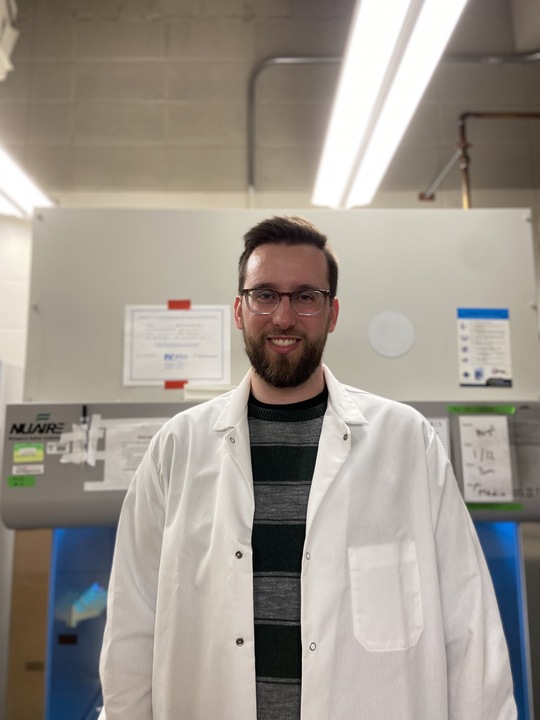
Many types of cancer, chemotherapy, and numerous other underlying conditions can leave patients vulnerable to infection by bacteria that would normally be unable to survive in the body. These opportunistic infections are challenging to treat, as antibiotics are often ineffective against these pathogens or have serious side effects not well-tolerated by individuals with underlying conditions. Dr. Sullivan studies how opportunistic infections occur, with a particular focus on lung infection. His ongoing work is centered on identifying bacterial adaptations that enable pathogens to survive both the host defense systems present in the lung as well as antibiotic treatment. His work will help deepen our understanding of opportunistic infection and may provide novel avenues for more effective and tolerable treatment of these pathogens.
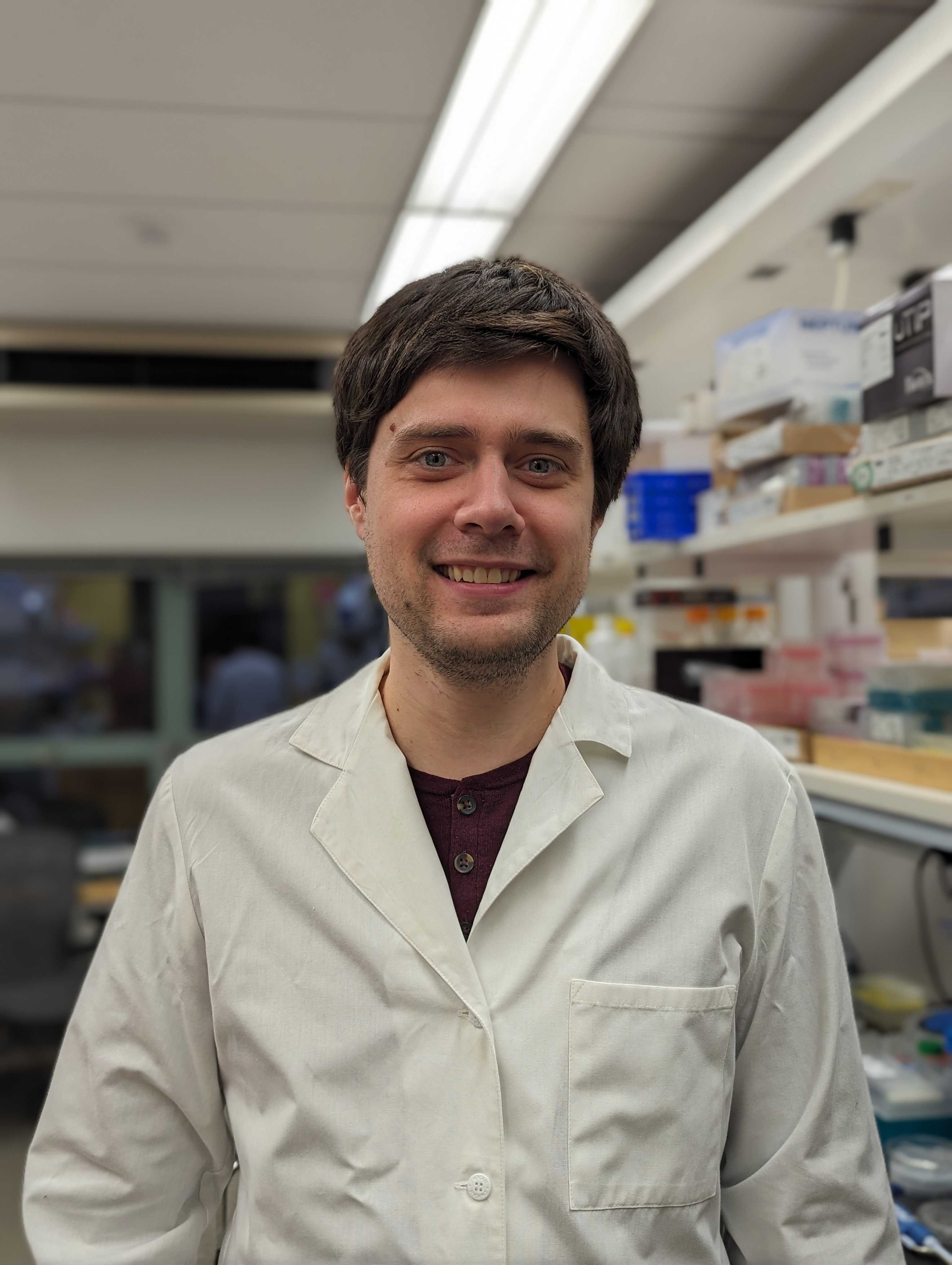
Antimicrobial resistance is a growing crisis that imperils our ability to protect patients immunocompromised by cancer treatment. Despite this, the few new antibiotics currently in clinical trials primarily use established mechanisms of action. Identification of new targets for antimicrobial drugs is thus an urgent clinical need. Recent work has shown that bacteria can tolerate substantial inhibition of many proteins thought to be essential for growth, rendering them poor drug targets. The mechanisms that cause this robustness are poorly understood. By combining cutting-edge microfluidic technologies with methods for controlled gene repression, Dr. Taggart will systematically identify mechanisms that allow bacterial cells to tolerate inhibition of genes critical for cellular growth. This work will guide the selection of targets for future antibiotic development and may reveal mechanisms by which to sensitize bacterial cells to existing drugs. Dr. Taggart received his PhD from Massachusetts Institute of Technology, Cambridge and his BS from Haverford College, Haverford.
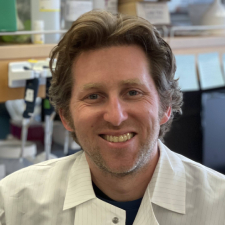
Chimeric antigen receptor (CAR) T cells are immune cells that have been genetically engineered to bind specific proteins on cancer cells. CARs can display exquisite sensitivity and discrimination, and CAR T cells have been deployed with spectacular success to detect and kill blood cancers. Unfortunately, they are much less effective against “solid” tumors, such as breast or kidney cancers. To address this problem, Dr. Titus [Connie and Bob Lurie Fellow] is designing T cells with membrane proteins that perform novel functions, including proteins that facilitate membrane fusion or alter the adhesion between T cells and their targets. By redesigning T cell membranes, Dr. Titus hopes to create useful cancer-fighting tools that can be deployed in conjunction with other emerging cellular therapies and immunotherapies. Dr. Titus received his MD and PhD from the University of California, San Francisco, and his AB from Harvard University.
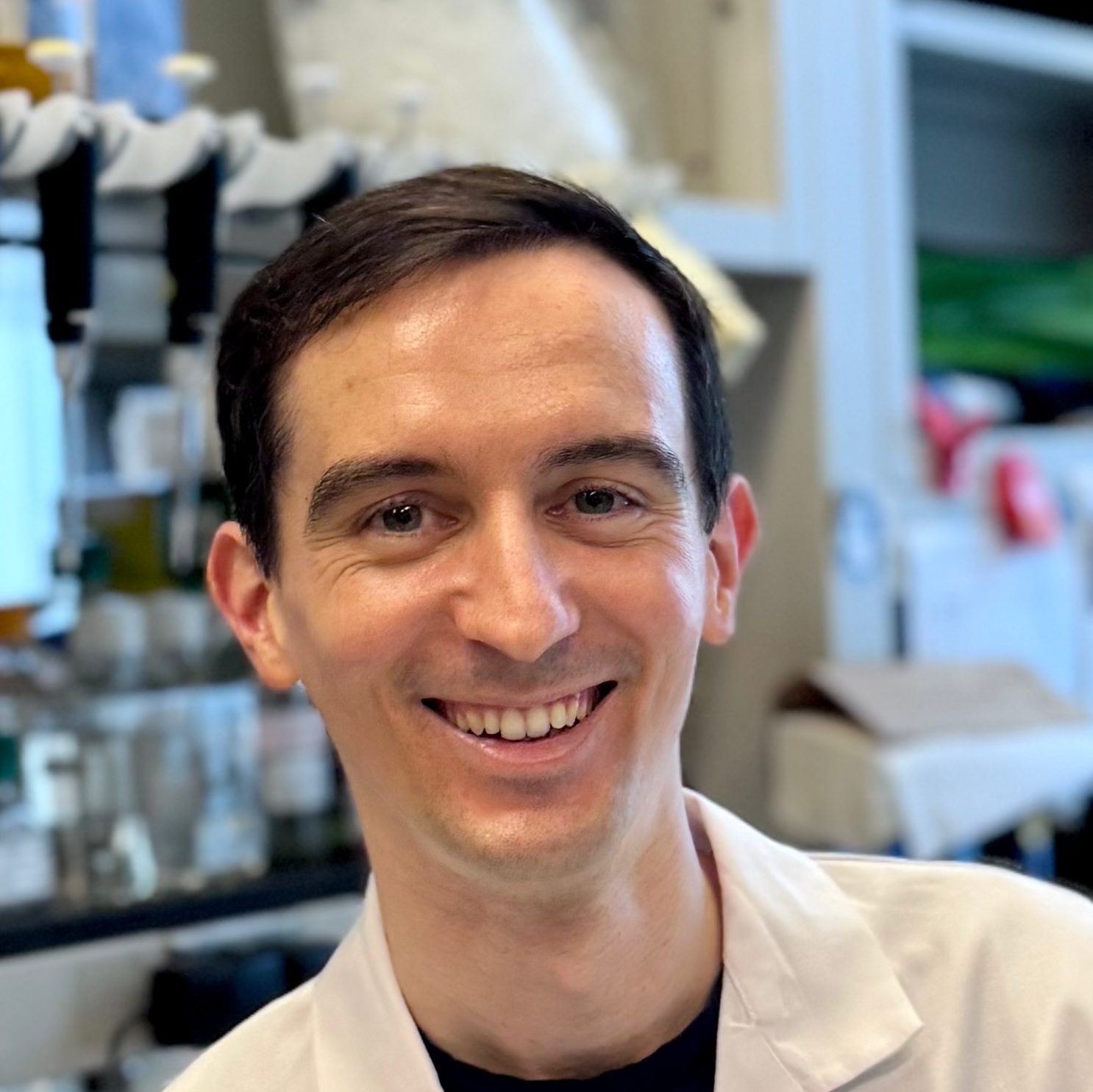
Genetic disturbances can disrupt normal cellular programs, promote unrestricted proliferation (i.e., tumor growth), and expose vulnerabilities that can be targeted therapeutically. However, how cells dynamically respond to such changes over time remains incompletely understood. Dr. Torre will use cutting-edge genetic tools, such as CRISPR and single-cell RNA sequencing, to study the precise sequence of molecular events triggered upon silencing of key regulators of cell identity and proliferation in human cells. By combining single-cell data with advanced statistical modeling, this work will reveal how gene perturbations dynamically alter cellular networks and drive survival or cell death, thus helping inform the development of novel cancer treatments. Dr. Torre received his PhD from the Icahn School of Medicine at Mount Sinai, New York, and his BS from the University of Trieste, Trieste.
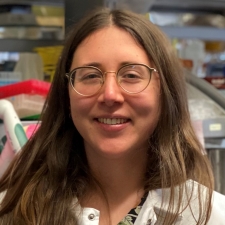
When an organism is developing, it must correct mistakes that might occur at the level of individual cells or tissues. Dr. Triandafillou [National Mah Jongg League Fellow] wants to better understand how error correction systems work, and why they might not work in cases like cancer. To explore these developmental questions, Dr. Triandafillou uses what are called gastruloids, 3D clusters of stem cells that can organize themselves and transform into the basic building blocks of an organism. She developed a method using microscopy to trace the history of these cells and measure how much their past state and history influence what they become. Dr. Triandafillou wants to see how differences in individual cells might impact what those cells eventually turn into, and how such differences affect the correction of mistakes like abnormal growth, bias in cell types, or missing cell types. She is also interested in how the cells around an error react to it. Dr. Triandafillou received her PhD from the University of Chicago and her BS from Temple University.
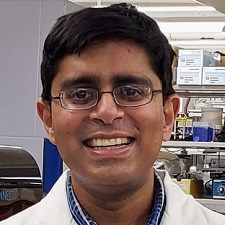
Epidemiologic studies have revealed that many cancer types display differences in incidence or outcomes between the sexes. In most cases, these differences are only partially explained by non-genetic factors such as hormonal differences, carcinogen exposure, lifestyle, and access to health care. Our understanding of how genetic factors contribute to differences in cancer incidence between the sexes remains incomplete. A fundamental genetic difference between the sexes is in chromosome composition. Relative to male somatic cells, female somatic cells have an extra X chromosome. Most genes on the second copy of chromosome X in females are inactivated via a process known as X-chromosome inactivation, which approximately equalizes the dosage of X-linked genes between males and females. Dr. Viswanathan's project tests the hypothesis that genetic alterations to the X chromosome in cancer may perturb this carefully regulated process and thereby contribute to differences in cancer incidence or pathogenic mechanisms between males and females.
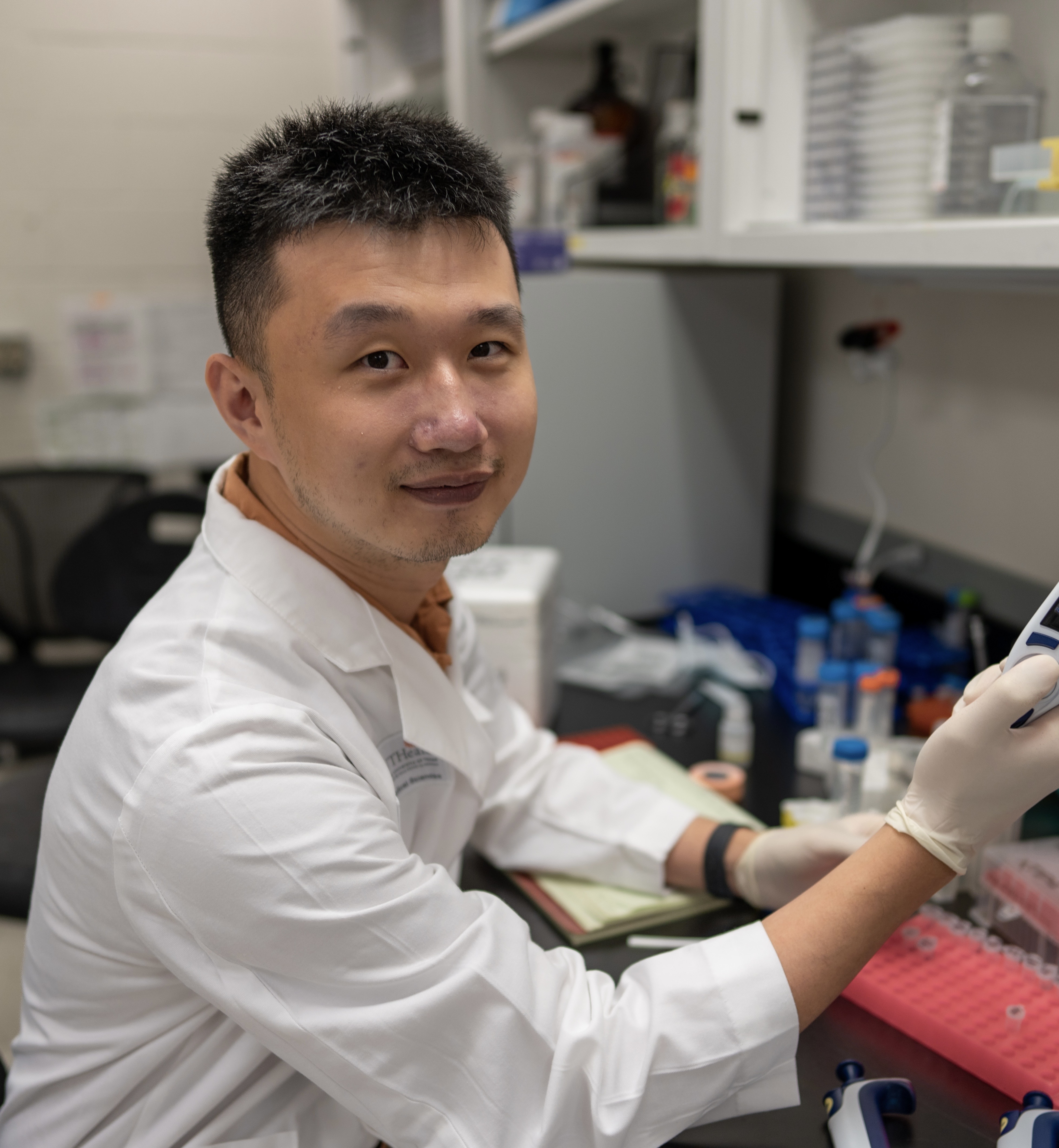
Many cancer mutations occur in regions of the human genome that do not code for proteins. These non-coding regions serve as vital regulators of gene expression; mutations in these regions contribute to various hallmarks of cancer. Elucidating these regulatory elements and their malignant variants is critical for advancing our understanding of cancer biology and fostering precision medicine. Deep learning sequence models can substantially enhance our grasp of the regulatory genome in both health and disease. To this end, Dr. Wang aims to combine generative AI models with single-molecule regulatory genomics to uncover the principles that underlie the cancer regulatory genome at unprecedented resolution and precision.
With single-molecule regulatory genomics, Dr. Wang will develop a deep generative AI model to learn the probability landscape of the single-molecule regulatory genome. By taking any DNA sequence as input, the deep generative AI model can generate diverse configurations of single-molecule chromatin states.
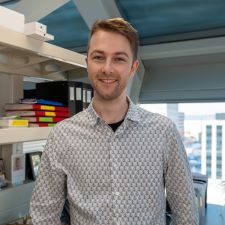
Cancer immunotherapy has revolutionized the way we treat cancer; however, it is only successful in a small subset of patients. Optimally functioning CD8 T cells, the specialized killers of the immune system, are key to the success of cancer immunotherapies. While CD8 T cell function is highly influenced by their metabolism, little is understood about how metabolism changes the function of these cells. Dr. Watson hypothesizes that metabolism affects CD8 T cell function by altering how tightly its DNA is packaged (its epigenetics), leading to altered gene expression. Using a mouse model of adoptive T cell therapy, a widely used immunotherapy in humans, and epigenetic techniques, Dr. Watson proposes to uncover how metabolism influences CD8 T cell epigenetic landscapes to control their function. He plans to apply these findings to improve T cell function and enhance tumor clearance. Dr. Watson received his PhD from the University of Pittsburgh, Pittsburgh and his BS from Hope College, Holland, Michigan.







